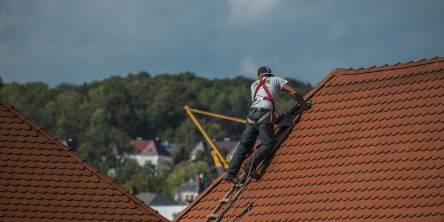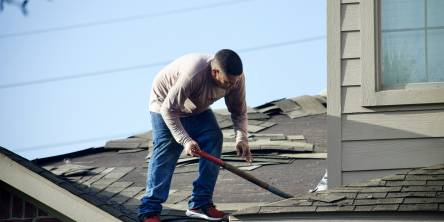How to Know if You Have a Pool Leak: Tests You Can Do at Home and When to Call a Pro

Having a pool is a luxury that comes with many perks, from summer days of relaxation to fun parties with family and friends. But with that comes the responsibility of keeping your pool healthy. One of the biggest issues pool owners face is water loss. Some evaporation is normal, but a big drop in water level means a leak. Ignoring this can cost you big time, waste water and even damage your pool’s structure. In this post we’ll go over how to recognize the signs of a pool leak, do some tests at home and know when to call a pro.
Signs of a Pool Leak
Before you start testing for leaks, you need to recognize the signs that something’s amiss. Early detection is key to preventing small problems from becoming big headaches. Here are some common signs your pool may have a leak:
Unusual Water Loss
All pools lose some water to evaporation, especially in warmer climates or summer. But if you’re finding your pool’s water level is dropping faster than usual, it could be a leak. A pool should lose about 1/4 inch of water per day to evaporation. If you’re refilling your pool more often than that, it’s worth looking into.
More Chemicals
Keeping the right chemical balance in your pool is crucial to having safe and clean water. If you’re using more chemicals than usual to balance the water, it might be because you’re losing water through a leak. When water leaks out, it takes chemicals with it, so you’ll need to add more to get the levels back to normal. This can cost you more and make it harder to maintain water quality.
Wet areas around the pool
Walk around your pool and inspect the area. If you see wet spots or soggy ground where there shouldn’t be any, it could be a sign of water escaping from the pool. This is especially concerning if those areas are still wet even when it’s dry outside. The water might be leaking from the pool plumbing or through cracks in the pool shell and seeping into the ground.
Air in the Pump System
Another sign something’s amiss is air in the pump system. If you see air bubbles coming from the return lines in the pool or hear the pump gurgling, it might be air getting into the system due to a leak. This can also affect your pool equipment and cause more problems if not fixed soon.
Visible damage
Sometimes the signs of a pool leak are obvious. Cracks in the pool walls or floor, loose or falling tiles or gaps around the fixtures can all be a sign of a leak. These can be from normal wear and tear, shifting ground or other factors but should be taken seriously. A small crack can become a big problem if water gets through and can cost you big time or even damage your pool’s structure.
DIY Pool Leak Tests
If you think your pool has a leak, there are several tests you can do at home before calling a professional. These tests will help you confirm if there’s an issue and where the leak might be.
The Bucket Test
The bucket test is one of the simplest and most accurate ways to know if your pool is losing water to evaporation or a leak. This can be done with a few household items and some time.
-
Fill a Bucket with Pool Water: Fill a large bucket with pool water. Fill it about an inch from the top so it won’t overflow during the test.
-
Place the Bucket on a Pool Step: Put the bucket on one of the steps in your pool. The goal is to have the water level inside the bucket match the water level outside the bucket.
-
Mark the Water Levels: Use tape or a waterproof marker to mark the water level on both the inside and outside of the bucket. This will help you see how much water is lost over time.
-
Wait 24-48 Hours: Leave the bucket in place for 24 to 48 hours. Don’t use the pool during this time. It’s important the pool isn’t used so any changes in water level are due to evaporation or a leak and not from splashing or other activities.
-
Compare the Water Levels: After the waiting period, check the water levels inside and outside the bucket. If the pool water level has dropped more than the water level inside the bucket, you have a leak.
The Dye Test
The dye test is another way to help you locate the general area of a leak if you think it might be in a specific spot, such as around a fixture, in a crack or near the pool shell.
-
Turn off the Pool Pump: To get accurate results turn off the pool pump. This stops the water from circulating and makes it easier to see where the dye is going.
-
Apply Dye Near Suspected Area: Take a small bottle of pool dye (or food coloring if you don’t have pool dye) and release a small amount near the area you suspect might be leaking. Don’t use too much dye as this will make it harder to see where it’s going.
-
Watch for Movement: Observe the dye closely. If it gets pulled into a crack, seam or around a fixture you’ve found the leak. The dye will naturally flow towards the leak as the water escapes making it easier to find the problem area.
When to Call a Contractor
While at-home tests are a good first step, there are times when you should bring in a professional pool contractor. Here’s when you should call:
If the Tests Confirm a Leak
If your at-home tests show a leak, especially if the bucket test shows significant water loss or the dye test shows a specific area, it’s time to call a professional. A pool leak detection company can do more thorough testing and find the exact location of the leak, whether it’s in the pool shell, plumbing or equipment.
Professionals have the tools and techniques to detect leaks without damaging your pool or property. For example they may use electronic leak detection devices that can find leaks in pipes buried underground or otherwise hard to reach.
If You See Structural Damage
If you see cracks in the pool walls or floor or visible damage to the pool deck or surrounding areas, these could be signs of a bigger problem. Structural issues can compromise your pool and should be addressed as soon as possible to prevent further damage.
A contractor will evaluate the damage and recommend the best solution. Depending on the severity of the issue this could be a simple repair or more extensive renovation work.
If the Leak is Affecting Pool Equipment
Leaks that are allowing air into the pump system or causing frequent equipment failures should be addressed by a professional. Pool contractors have the tools and knowledge to repair or replace faulty equipment and fix any leaks that are causing these issues. Ignoring problems with your pool equipment will lead to decreased efficiency, higher energy bills and further damage to the pool system.
If You Think It’s a Plumbing Leak
Plumbing leaks are harder to detect and fix yourself. If you think it’s a leak in the underground plumbing or return lines it’s best to call a contractor. These types of leaks can cause significant damage if left unchecked, soil erosion, foundation problems and more.
Contractors have the specialized equipment, pressure testing tools and listening devices to find and repair these types of leaks without damaging your property. They can also give you advice on how to prevent future leaks and keep your pool in top shape.
Protect Your Pool
Detecting a leak early and knowing when to call a contractor is crucial to your pool’s health and longevity. By doing simple at-home tests and being aware of the signs of trouble you can avoid costly repairs and keep your pool safe and enjoyable for years to come.
Whether it’s a small issue or a bigger problem, addressing leaks ASAP will protect your investment and keep your pool in shape. Regular maintenance and professional inspections are key to preventing leaks and extending the life of your pool. So the next time you notice something weird with your pool don’t wait – your pool and your wallet will thank you.
Similar Articles
You do not always need to do a major renovation, a huge budget, or even employ a contractor to make improvements on your home.
Struggling with recurring roof repairs? Discover why issues keep coming back, from poor installation to mismatched materials, and learn how to avoid costly fixes.
Explore modern wooden tiles designs, finishes, patterns & colour trends. Discover ceramic and vitrified wood tiles for timeless, elegant interiors.
Learn how an HVAC contractor provides reliable heating and cooling through expert installation, repairs, maintenance, and energy-efficient solutions.
Gutters play a critical role in directing rainwater away from a home, yet they are often overlooked in routine maintenance. Because they sit above eye level, problems can develop quietly until visible damage appears on walls, foundations, or interior spaces.
When upgrading your bedroom, choosing the right mattress is essential for a good night’s sleep. A double mattress offers the ideal balance between comfort and practicality, making it a popular choice for couples, guest rooms, and growing teens.
Water has an uncanny ability to find its way into places it shouldn't be.
There's a particular feeling that comes with stepping into your backyard on a Saturday morning and actually wanting to be there.
Bathrooms are among the most frequently used spaces in any home, yet they’re often overlooked when it comes to meaningful design.









